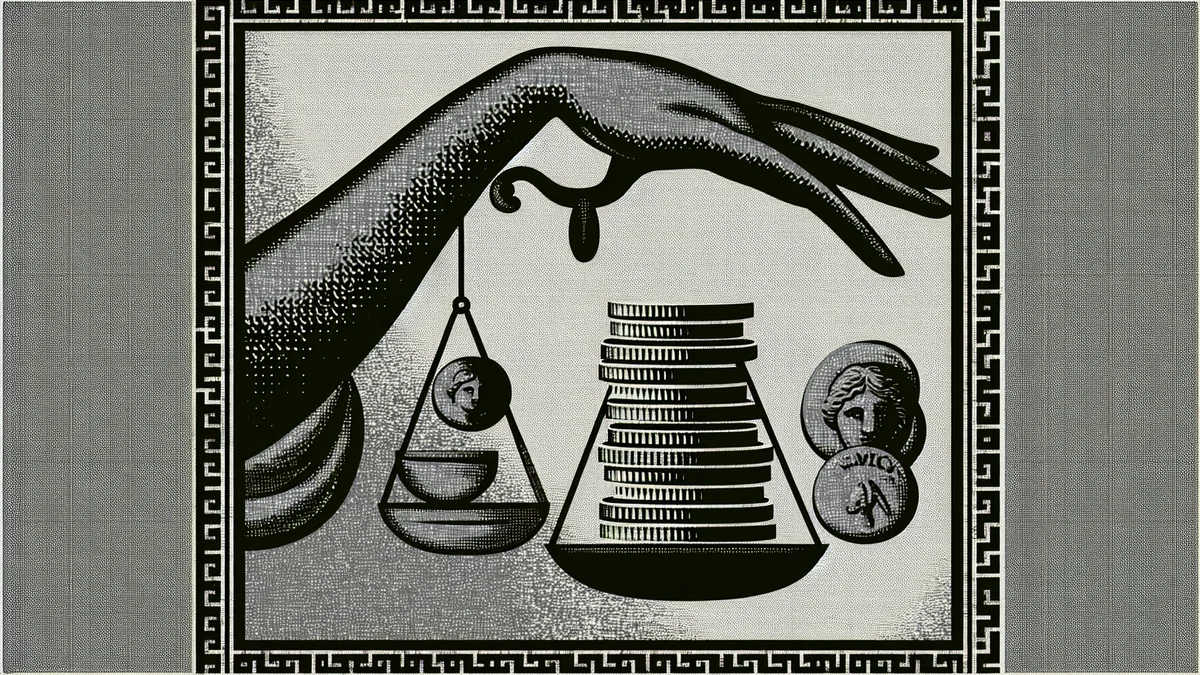ZZZZ Best: The Fraud That Reshaped Australian Corporate Oversight
Stay informed, stay sceptical, and always dig deeper—because in finance, history’s lessons are your best defence against tomorrow’s risks.

Want money tips in your inbox?
ZZZZ Best: The Fraud That Reshaped Australian Corporate Oversight
Introduction

In the annals of financial history, few stories are as gripping as that of ZZZZ Best, a company whose rise and fall in the late 1980s became a cautionary tale for investors worldwide. Initially hailed as a promising player in the commercial cleaning industry, ZZZZ Best’s dramatic collapse exposed the fragility of unchecked ambition and the devastating impact of corporate fraud. While the saga unfolded in the United States, its repercussions reverberated across the globe, prompting significant changes in corporate governance and oversight, including in Australia.
As we delve into this compelling case, we will explore how ZZZZ Best’s fraudulent activities led to tighter regulatory frameworks, the role of key Australian bodies like ASIC and APRA, and why understanding this historical fraud is crucial for contemporary investors and business leaders. With Australia’s economy continually evolving in 2025, the lessons from ZZZZ Best remain pertinent, underscoring the importance of transparency, due diligence, and robust governance.
Pro Tip: Always conduct thorough due diligence before investing in any company, especially when the returns seem too good to be true.
Key Definitions
Understanding the nuances of financial fraud requires clarity on several key terms that are relevant in the Australian context:
-
Corporate Fraud: Deliberate misrepresentation or deceit by a company or its executives to secure an unfair or unlawful advantage. This can involve falsifying financial statements, misleading investors, or embezzlement.
-
Due Diligence: A comprehensive appraisal of a business undertaken by a prospective buyer or investor, particularly to establish its assets and liabilities and evaluate its commercial potential.
-
Regulatory Oversight: The process by which regulatory bodies monitor and enforce compliance with laws and regulations to ensure the integrity of financial markets.
In Australia, bodies like the Australian Securities and Investments Commission (ASIC) and the Australian Prudential Regulation Authority (APRA) play vital roles in maintaining market integrity and protecting investors.
The Meteoric Rise and Catastrophic Fall of ZZZZ Best
Founded in 1982 by Barry Minkow, ZZZZ Best was initially a small carpet-cleaning business operating in California. However, within a few years, the company claimed to have secured lucrative insurance restoration contracts, boasting impressive revenue growth. By 1986, ZZZZ Best went public on the NASDAQ, achieving a market valuation of over $200 million. This extraordinary rise captured the imagination of investors and analysts alike, propelling the company into the spotlight.
Key Elements of the Fraud
-
Fabricated Revenue: A significant portion of ZZZZ Best’s reported income was entirely fictitious. Minkow and his associates forged documents and created fake companies to inflate the company’s financial performance.
-
Investor Frenzy: The hype around ZZZZ Best led to a buying spree on Wall Street, with investors eager to capitalise on the seemingly unstoppable growth trajectory.
-
Collapse: In 1987, the truth unraveled when investigative journalists and auditors exposed the fraudulent activities, leading to the company’s bankruptcy and Minkow’s imprisonment.
The scandal not only rocked the United States but also had significant implications for corporate governance practices in Australia, leading to a reevaluation of oversight mechanisms.
Lessons for Australia: Policy and Practice in 2025
The ZZZZ Best debacle served as a wake-up call for Australian regulators and businesses, influencing changes that are still relevant in 2025. Here are some key lessons and policy shifts that have been implemented:
Audit Reform
-
Enhanced Auditor Independence: Australia introduced stricter rules governing auditor independence, including mandatory rotation policies to prevent conflicts of interest and ensure objective assessments.
-
Verification of Contracts: Auditors are now required to conduct more rigorous checks on client contracts and revenue claims, a direct response to the ZZZZ Best case.
ASIC’s Expanded Powers
-
Early Intervention: Post-2023 reforms have expanded ASIC’s authority to investigate and intervene promptly when fraud is suspected, reducing the likelihood of significant financial losses.
-
Improved Surveillance: ASIC employs advanced technology to monitor market activities and detect anomalies indicative of fraudulent behaviour.
Investor Education
-
Financial Literacy Initiatives: ZZZZ Best is used as a case study in financial literacy programs, highlighting the dangers of investing in companies without proper verification.
-
Red Flag Training: Investors are taught to identify warning signs of fraud, such as overly complex business models and aggressive revenue claims.
Whistleblower Protections
-
Strengthened Protections: The Australian government has implemented robust protections for whistleblowers, encouraging individuals to report suspicious activities without fear of retaliation.
-
Incentives for Reporting: Financial incentives are provided to whistleblowers who contribute to uncovering fraud, fostering a culture of transparency and accountability.
Important: Australia’s financial landscape in 2025 continues to prioritise transparency and investor protection, with ongoing reforms to strengthen regulatory frameworks.
How Corporate Fraud Works
Understanding corporate fraud requires a look at the mechanisms by which dishonest executives can manipulate their companies’ financial performance. Here’s a detailed explanation of the processes involved:
Creating Fictitious Revenue
Fraudsters often inflate revenue figures by creating fake invoices and sales records. This gives the appearance of growth and attracts investors. In ZZZZ Best’s case, Minkow forged documents to create the illusion of lucrative contracts in the insurance restoration sector.
Concealing Liabilities
To make a company appear more financially stable, fraudsters may hide liabilities or debts. This can involve manipulating accounting records or using complex financial instruments to obscure the true financial state.
Misleading Financial Statements
By manipulating financial statements, company executives can present an overly optimistic view of their business. This can involve overstating assets, understating liabilities, or inflating profits. Auditors play a crucial role in verifying the accuracy of these statements.
Exploiting Weak Regulatory Oversight
Inadequate oversight allows fraudsters to operate with little fear of detection. This underscores the importance of robust regulatory frameworks and diligent enforcement by bodies like ASIC and APRA.
Warning: Fraudulent activities can devastate investors and employees. Always verify a company’s financial health through reliable sources and third-party audits.
Practical Examples and Impact on Australian Businesses
Let’s consider a hypothetical scenario to illustrate the impact of a fraud similar to ZZZZ Best on an Australian company:
Example Scenario: Aussie Clean Co.
-
Background: Aussie Clean Co., a rising star in the Australian commercial cleaning sector, claims to have secured government contracts worth $50 million.
-
Red Flags: Upon closer inspection, discrepancies in contract details and unexplained revenue spikes raise suspicion among stakeholders.
-
Outcome: A thorough audit reveals that the contracts were fabricated, leading to a sharp decline in stock prices and legal action against the executives involved.
Impact on Stakeholders
-
Investors: Faced significant losses as share prices plummeted, highlighting the importance of due diligence before investing.
-
Employees: Job losses and reputational damage affected the workforce, demonstrating the broader social impact of corporate fraud.
-
Regulators: Prompted ASIC to tighten oversight measures, ensuring better protection for investors in the future.
Expert Tips for Avoiding Investment in Fraudulent Companies
Here are some strategies to help investors avoid falling victim to fraudulent schemes:
-
Conduct Thorough Research: Investigate a company’s history, leadership, and financial performance. Use resources like ASIC’s company registers to verify details.
-
Seek Independent Verification: Engage third-party auditors or consultants to assess a company’s financial statements and claims.
-
Stay Informed: Follow updates from regulatory bodies like the RBA and APRA to stay informed about industry trends and potential red flags.
-
Diversify Investments: Avoid putting all your capital into a single company or sector to mitigate risk.
Pro Tip: Regularly review your investment portfolio and adjust your strategy based on economic conditions and company performance.
FAQ Section
What led to the collapse of ZZZZ Best?
ZZZZ Best collapsed due to extensive fraudulent activities, including fabricating revenue and creating false documents to inflate its financial performance.
How did the ZZZZ Best scandal impact Australian regulations?
The scandal prompted Australian regulators to strengthen oversight mechanisms, enhance auditor independence, and improve whistleblower protections to prevent similar frauds.
What role does ASIC play in preventing corporate fraud?
ASIC monitors compliance with financial regulations, investigates suspected fraud, and enforces penalties against violators to maintain market integrity.
Why is due diligence important for investors?
Due diligence helps investors verify a company’s financial health, identify potential risks, and make informed investment decisions, reducing the likelihood of financial losses.
How can whistleblowers contribute to detecting fraud?
Whistleblowers provide critical information about fraudulent activities, enabling regulatory bodies to investigate and take corrective action, thus preventing larger financial scandals.
Conclusion/Summary
The ZZZZ Best scandal serves as a stark reminder of the importance of vigilance, integrity, and accountability in the corporate world. As Australia continues to navigate its economic landscape in 2025, these principles remain the bedrock of sustainable business practices. By learning from past mistakes, implementing robust regulatory frameworks, and fostering a culture of transparency, Australia can safeguard its financial markets and protect investors from the devastating impacts of corporate fraud.
2025 Update: Recent reforms have further strengthened Australian corporate governance, ensuring that the lessons from ZZZZ Best continue to inform best practices and regulatory policies.
Enjoyed this article?
Get more money-saving tips delivered straight to your inbox every week.
No spam. Unsubscribe anytime.
Financial Tips That Actually Make Sense
No jargon. No spam. Just one useful tip per week to help you keep more of your money.
Join 50,000+ subscribers